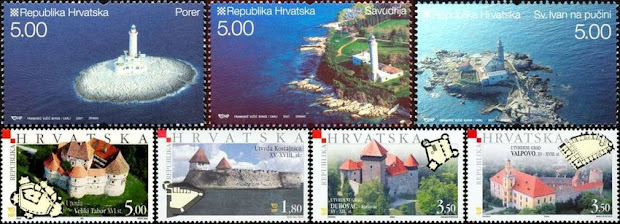At Interliber, the annual international (Bosnia, Serbia and Montenegro are present too) book fair in Zagreb, the book Language and Identity in the Balkans by Robert David Greenberg attracted my attention. I did not buy it, but decided to borrow it from the Zagreb public library. It doesn't have the original English (or should I say: American?) version, but it did have a Croatian translation. At least today we call it a Croatian translation. Earlier translations would enter libraries with the language code "serbocroatian", but that is history.
Pointing out that the differences, in spelling or pronunciation, between Serbian and Croatian are next to nothing compared to the variety you can find in German, Dutch, French or English makes no sense. Also, the three Croatian dialects (štokavian, kajkavian and čakavian) differ much more from each other than standard Croatian differs from standard Serbian. But who cares about science? It's all a matter of identity. Some people believe in extraterrestrial life, others in a language - fine with me. Serbo-Croatian is dead (except on Wikipedia) or simply never existed. The pencil strokes and question marks in Greenberg's book suggest that the previous reader was of that opinion.
 Maybe that person is right. When I visited Montenegro, I spoke Croatian with the lady that sold me an ice cream. She said: "You speak nice Serbian". I felt very proud, but at the same time I wondered: Who is crazy here? If the lady listens to her government, next time she should tell me: "You speak nice Montenegrin". My CV is getting longer and longer.
Maybe that person is right. When I visited Montenegro, I spoke Croatian with the lady that sold me an ice cream. She said: "You speak nice Serbian". I felt very proud, but at the same time I wondered: Who is crazy here? If the lady listens to her government, next time she should tell me: "You speak nice Montenegrin". My CV is getting longer and longer.
Pointing out that the differences, in spelling or pronunciation, between Serbian and Croatian are next to nothing compared to the variety you can find in German, Dutch, French or English makes no sense. Also, the three Croatian dialects (štokavian, kajkavian and čakavian) differ much more from each other than standard Croatian differs from standard Serbian. But who cares about science? It's all a matter of identity. Some people believe in extraterrestrial life, others in a language - fine with me. Serbo-Croatian is dead (except on Wikipedia) or simply never existed. The pencil strokes and question marks in Greenberg's book suggest that the previous reader was of that opinion.
 Maybe that person is right. When I visited Montenegro, I spoke Croatian with the lady that sold me an ice cream. She said: "You speak nice Serbian". I felt very proud, but at the same time I wondered: Who is crazy here? If the lady listens to her government, next time she should tell me: "You speak nice Montenegrin". My CV is getting longer and longer.
Maybe that person is right. When I visited Montenegro, I spoke Croatian with the lady that sold me an ice cream. She said: "You speak nice Serbian". I felt very proud, but at the same time I wondered: Who is crazy here? If the lady listens to her government, next time she should tell me: "You speak nice Montenegrin". My CV is getting longer and longer.




0 reacties:
Post a Comment